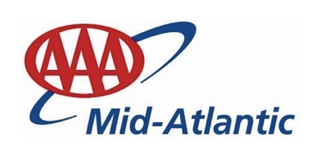


Both organizations will testify in opposition to SB 1039 – Constitutional Amendment – Cannabis – Use, Possession, Cultivation, and Sale, which, if passed by the Maryland General Assembly and approved by the voters in the next general election, would legalize the consumption, possession, cultivation, and sale of marijuana in Maryland.
As an advocate for the safety of motorists, AAA Mid-Atlantic is troubled by the safety implications of individuals using marijuana and getting behind the wheel. Marijuana can decrease car handling, performance and attention, while increasing reaction times, following distance and lane deviation.
The auto club also says most states are not fully prepared to handle an increasing spike in drugged driving. That is largely because there is no easy roadside test for law enforcement to determine whether a driver is impaired by marijuana. Currently no testing procedures exist to reliably predict driver impairment due to consumption of marijuana. Unlike with alcohol, the presence of certain amounts of THC, the active ingredient in marijuana in the bloodstream does not correlate with driver impairment.
“Drugged driving is on the rise and is a serious traffic safety concern for Maryland motorists,” said Ragina Cooper Averella, Manager of Public and Government Affairs at AAA Mid-Atlantic.
In an exclusive AAA poll, conducted by Public Policy Polling last April, 85 percent of Maryland drivers surveyed consider someone driving after using illegal drugs a serious threat to their safety. If marijuana is legalized for recreational use, 72 percent of Maryland drivers indicated they would be somewhat or very concerned about the dangers posed by others driving after using the drug.
“It is surprising how quickly licensed Maryland drivers have grasped the dire threat to their safety posed by others driving after using illegal drugs, especially when considering the number of years it took to change social perceptions about the dangers posed by drinking and driving,” Averella added.
SAM (Smart Approaches to Marijuana) says regardless of good intentions, Senate Bill 1039 is bad policy. The non-profit, science-based policy group shares AAA’s concern regarding road safety, but also states that legalization will increase marijuana use, including among children, reduce businesses’ productivity, and target communities of color. Additionally, legalization will not help Maryland’s budget due to the costs of implementing the program and dealing with its consequences, and will not reduce black marketeering or criminal activity surrounding the drug.
“Legalizing marijuana would kickstart a 21st century tobacco industry relying on addiction for profit,” said Kevin A. Sabet, Ph.D., President of Smart Approaches to Marijuana (SAM) and a former Obama Administration drug policy advisor. “States with legal marijuana have more drug use, more car crashes, and even more arrests — in Colorado alone, the rate of marijuana arrests for young black men has increased 58 percent since legalization. We don’t need to legalize marijuana to address injustices or reform marijuana policy.”
According to the 2013-2014 National Roadside Survey from the National Highway Traffic Safety Administration (NHTSA), drug use among night-time weekend drivers has increased nationwide by 25 percent since 2007, when the last survey was conducted. The drug showing the greatest spike was marijuana, with an increase of 48 percent.
Here in Maryland, Drug Recognition Experts (DREs) conducted 330 total DRE evaluations in 2016 and 2017 where a driver was identified being impaired by cannabis, according to State Police. AAA Mid-Atlantic believes legalization of the drug would almost certainly increase impaired driving arrests and traffic fatalities.
The auto club says many lessons can be learned from Maryland’s neighbor to the south, Washington, D.C. which legalized the drug in 2014, when voters cast their ballots in favor of Initiative 72.
Nearly one in five fatal crashes in the District of Columbia involves a driver testing positive for the presence of marijuana, according to a 2016 report released by the District of Columbia Health Department. That is not too far behind the number of traffic fatalities in the city involving driving under the influence of alcohol, 28.8 percent. As cited in the report, marijuana is one of the most commonly detected drugs in traffic fatalities in the District, according to the District of Columbia Office of the Chief Medical Examiner. It’s important to remember, however, that no roadside technology exists that can measure THC in the brain, where impairment occurs.
“While some have compared the efforts to legalize marijuana and the revenues it would generate to the legalization of casinos in Maryland, there is no comparison,” commented Averella. “Any revenues generated by marijuana would be offset by consequential issues of public health and safety – creating risks we simply cannot afford to take.”